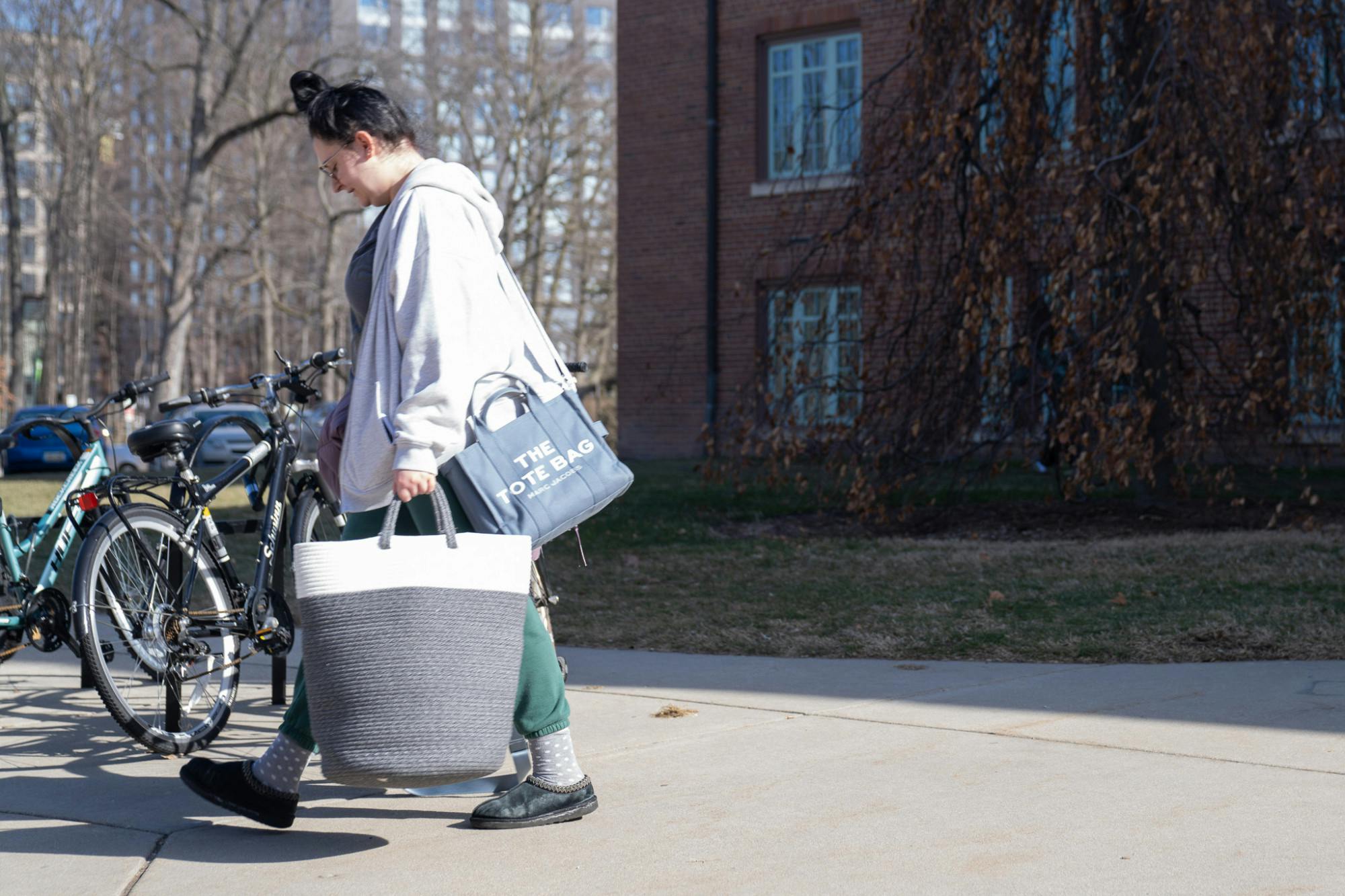The mass shooting on Michigan State University's campus on Monday, Feb. 13 will leave a long and complicated process for students who are trying to cope with the events, said some trauma experts.
Hofstra University Professor Mitchell Schare likened the mass shooting to a car accident. Schare, who has studied trauma for over 40 years and runs a campus trauma-psychology clinic, said while most students can’t quite grapple with the specificities of the shooting, “we all can understand a car accident.”
“No one planned or knew or understood, people just experienced what happened,” Schare said. “So, it's analogous in that way. But how long until the person who was in the car accident would get back in the car? … Maybe you don't want to drive the same route you would, and maybe you'll drive very slowly and make sure you're using your mirrors a lot. You might not be the same driver immediately afterwards. But maybe it'll take a month or three months or six months, but you'll be driving normally again. And with time and with support. People can return back to their lives.”
The Basics:
Experts emphasized while it's easy to forget about your most basic needs in a time of extreme stress, taking care of yourself is an important first step.
Tulane Professor of Psychology Stacy Overstreet said in an email to The State News, "the basics are extremely important for everyone, limiting exposure to media coverage and tending to basic needs are critical for coping. Students need to remember to eat, hydrate, rest and engage in physical activity."
She added that "students should avoid coping strategies that numb their emotions, like using drugs or alcohol excessively. These strategies may provide some temporary relief from intense emotions, but they can lead to negative outcomes over time."
Reach Out:
University of Connecticut Distinguished Professor Sandra M. Chafouleas, an expert on school psychology and trauma-informed schools, said one of the most simple and important things after a traumatic event is reaching out to those you care about.
“It’s not necessarily expecting that you have to have this long, drawn-out therapy conversation. It’s just about connecting to make sure that that person knows that you're thinking about them," Chafouleas said. "Some people aren't gonna want to talk about it then, or maybe ever. But, knowing that you've got a supportive connection, if you needed it, or that you could reach out to, is one of the most important things to have in place.”
Schare emphasized the importance of giving people space to process what they experienced before they can open up about it.
“People will talk, will express their emotions, will express their thoughts, when they're able to," Schare said.
Differing Reactions:
Schare said while many students may become increasingly fearful in the coming days–distrusting strangers, not wanting to leave their dorms or apartments–it’s not uncommon for others to be confident about their safety immediately following a traumatic violent event.
He cautioned those students to be respectful and understanding of their peers who are on edge.
There's nothing wrong with people feeling scared and people should be respectful and sensitive to the feelings of others, Schare said.
“People come into a situation that they didn't expect,” Schare said. “They bring their personal histories with them. They bring their own emotional styles and their own emotional ways of reacting, all of these characteristics contribute to how any individual person may react.”
Academics:
To administrators, Schare warned that traumatic stress can greatly affect focus, making a return to schoolwork particularly difficult especially in the days or weeks following a traumatic event.
For professors, Chafouleas pointed to a resource assembled by Vanderbilt University called “Teaching in Times of Crisis,” which lays out strategies for trauma-informed teaching.
Support student media!
Please consider donating to The State News and help fund the future of journalism.
Persistent Symptoms:
The symptoms Chafouleas and Schare described are acute. They can be severe and usually contained to the days or weeks after the inciting incident.
But, Schare warned if those immediate reactions persist beyond the first few weeks, students should seriously consider seeking professional counseling. He further recommended students seek out counselors, social workers, and therapists specifically trained in trauma psychology and PTSD.
Further Resources:
Chafouleas pointed to organizations available to students and parents seeking expert guidance on coping with this traumatic event.
The National Child Traumatic Stress Network, or NCTSN, has a guide for signs and symptoms of trauma in survivors of various age-groups.
The guide warns that 18-24 year-olds exposed to traumatic events like school shootings often feel self-conscious about their emotional response.
“Feelings of fear, vulnerability, and concern over being labeled ‘abnormal’ or ‘different’ from their peers may cause adolescents to withdraw from family and friends,” the guide says.
For parents:
The NCTSN has a set of guidelines describing how to best help youth immediately after a school shooting event.
Looking ahead:
Chafouleas pointed to a guide for handling anxiety surrounding mass shooting when returning to schools from the JED foundation, a nonprofit which seeks to protect emotional health and prevent suicide in teens and young adults.
Discussion
Share and discuss “Trauma experts on how to move forward” on social media.







